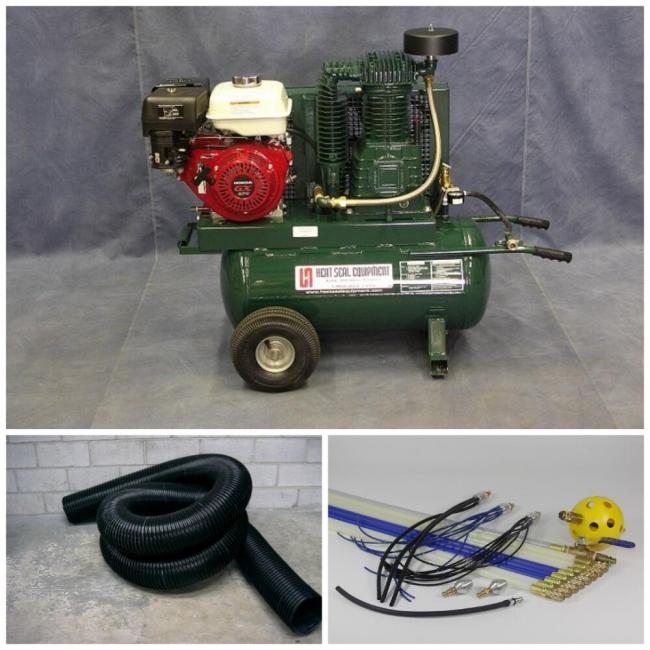Duct Cleaning Air Compressor: Maintenance Tips For Peak Performance

The heart and soul of your duct cleaning business, selecting the right air compressor, is only half the job done. The other half involves maintaining it so it continues to deliver the type of performance you expect from it.
A hard-working machine that powers a ton of accessories – from skipper balls and whips to agitation tools – your air compressor needs routine care to offer top-notch performance on every job. Avoiding maintenance can lead to poor airflow, which in turn can lead to subpar cleaning action, time wasted on the job, and eventually costly repairs.
To address this issue, we assembled our best minds to develop effective duct cleaning air compressor maintenance tips that enhance the longevity and performance of your machine. Let’s begin.
Duct Cleaning Air Compressor Maintenance Tips Contractors Swear By
1. Regularly check and change the oil
Bear in mind, this tip does not apply to electric compressors. It is for gas compressors only. Replacing the oil periodically ensures the inner components of your machine are optimally lubricated. It also prevents excess friction and overheating during use.
We recommend you check your duct cleaning air compressor’s oil levels daily – preferably before starting your project of the day. If you find the levels are low, top them up. If not, the manufacturers are bound to offer rules concerning oil change that you can follow. Certain makers prescribe changing oils after every 500 to 1000 hours of use.
Also, be sure you only use the grade of oil the makers recommend. Anything else might damage your machine. You do not want to shorten the lifespan of your compressor or fall prey to costly downtime.
2. Clean the air filters
Dust and debris are inevitable on a duct cleaning job. Sooner or later, they find their way into the air filters of your compressor too, leading to issues such as clogging, restricted airflow, and reduced efficiency. In fact, dust and debris build-up will force your machine’s motor to work twice as hard, causing it to malfunction or break down.
To combat this, we recommend:
- Weekly inspection of your compressor’s filters
- Regular cleaning of filters or replacement
- Keeping spare filters on standby for emergencies
With clean, well-maintained filters, you do not have to worry about inconsistent airflow or excess pressure on your motor.
3. Drain the tank periodically
Just like for any other air duct cleaning tools in your arsenal, you have to find ways to keep moisture away from your compressor. The problem is, it’s much harder to do that here. Compressor tanks can collect moisture during use, which, if left unchecked, can lead to issues like rust, corrosion, and contamination.
A simple fix is to drain your machine’s tank daily – especially if your job takes you to humid environments. If your schedule is jam-packed, we would recommend getting an automatic drain valve. It is convenient, and you will not have to worry about manually draining the tank daily.
4. Inspect the hoses
Air duct cleaning tools are just as important to maintain as the compressor itself, and hoses are one of them. If the hose you use is worn down or leaking, it will directly impact airflow, forcing your machine’s motor to work harder. That is why it is critical to check the hose for cracks and loose fittings. You should replace damaged hoses immediately and store them properly to prevent damage in the first place.
Conclusion
Regular maintenance of your duct cleaning air compressor not only extends its lifespan but also protects your business’s reputation in the market. A well-maintained air compressor delivers reliable performance each time, devoid of any mess or delays, thus boosting customer satisfaction.
If you want to build a reputable and professional image for your duct cleaning business, it is critical that you get high-quality tools that are easy to maintain. Heat Seal Equipment Ltd. offers the best equipment in Ajax, Ontario. Contact us to get pro-grade tools that will reward you in the short and long run.





